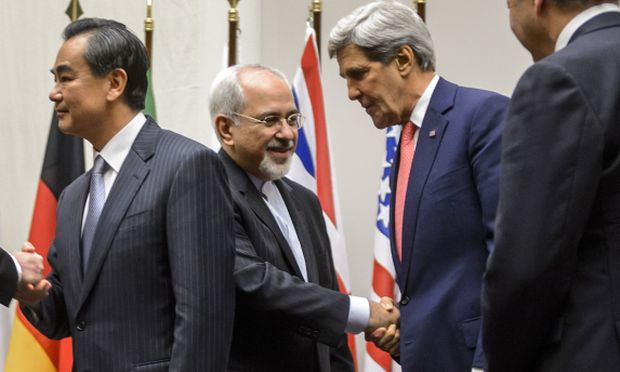On the eve of the resumption of Iran’s nuclear talks, Iran’s Supreme Leader, Ayatollah Ali Khamenei, said he was not optimistic about their outcome. He did, however, add that he did not object to the talks. These statements were made on a Monday evening, hours before negotiators from the P5+1 group met in Vienna on a Tuesday to hold talks on reaching a comprehensive agreement with Iran regarding its controversial nuclear program.
Reaching a final agreement regarding Iran’s nuclear program is very important for all parties participating in the negotiations. It seems clear to all parties that if these talks fail, then the only option to confront Iran’s nuclear program—which is developing more each day—is war.
If Iran’s nuclear ambitions really aim to serve peaceful and civilian purposes, as they claim, then there should be no problem if the enrichment of uranium is restricted for the sake of building trust between Tehran and the P5+1 group. But the question remains: If the Iranians are all optimistic about the nuclear negotiations with Western powers, then why does Ayatollah Khamenei appear pessimistic? At the same time, if international powers are ready to settle the nuclear issue via diplomatic means in which all parties engage in bilateral talks, then why did the Supreme Leader voice his unhappiness about these negotiations on the eve of the important meeting?
Media outlets and observers have a different interpretation of Khamenei’s statements; they consider that his statements originated from his dissatisfaction with the entire negotiation process and the lack of trust regarding limiting Iran’s nuclear activity at a time when sanctions and American threats to launch war against Tehran remain open.
In my view, Khamenei’s statement indicated his dissatisfaction with the Iranian negotiating party, which he thinks is getting closer to its American counterpart. Khamenei fears that the nuclear talks could eventually lead to negotiations on normalizing relations between Tehran and Washington.
In fact, the Iranian Supreme Leader seems more accepting of a scenario in which his country falls prey to severe sanctions and is subject to a possible confrontation with the United States. Meanwhile, he won’t be happy if negotiators trespass over the red line of engaging in serious negotiations with the US, as this negates the legitimacy of the Iranian Revolution, which was based on enmity with the US and the West.
For some of those in power, to be able to rule the people and justify the harsh conditions they subject the people to, they need an enemy. The stronger the enemy gets, the more it serves the aims of those in power. The US became the perfect enemy in the years after the eruption of the Islamic Revolution in Iran. Khamenei clearly said that some in the previous and current governments want warm relations with the US and seek to legitimize Washington as a humane government, “but these efforts won’t yield results,” in his view.
To justify this suggestion, Iranian Deputy Foreign Affairs Minister Abbas Araghchi said during an interview with the state television a week ago that decreasing tension cannot lead to a resumption of relations between the two countries. He added: “Officials on both sides say that talks [on Iran’s nuclear program] don’t mean improving relations.”
The team of Iranian negotiators needs to repeat this many times in order to assure hardliners that they know their limits and that they won’t deviate from the path of nuclear talks in order to engage in talks on normalization with the US.
Also, the presence of a national enemy that threatens the Islamic Republic of Iran—the US—remains a gift from God for Israel, as rapprochement between the US and Iran is Israel’s greatest fear.
Of course, Russia and China also exert a lot of pressure to foil any plans to normalize relations between Iran and the US due to the several aspects of competition between them and the US, but Israel remains a different story by all standards. Iran can influence peace talks with the Palestinians and it can change in the balance of powers in the region should there be a rapprochement between it and the US.
Many countries, primarily Iran and Israel, need to maintain the idea of the enemy so they can justify their inhumane policies. Iran and the US are perfect example of this concept. This is why we can safely tell Iranian Foreign Affairs Minister Mohammad Javad Zarif: “Relax and forget about America!”
